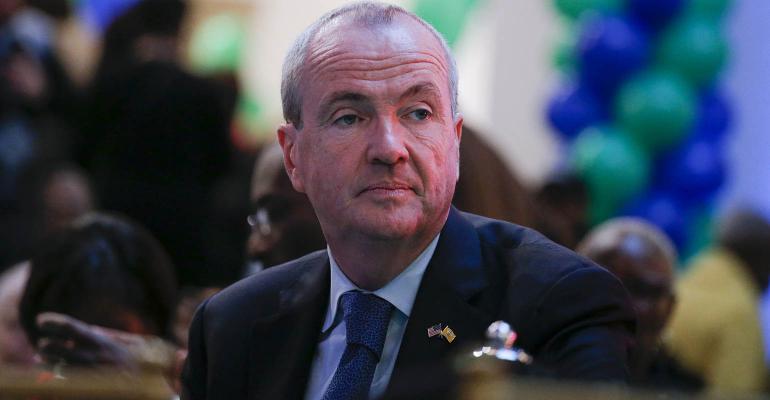Last week, New Jersey Gov. Phil Murphy announced that officials have reached a deal on a “millionaire tax,” which will increase state taxes (to 10.75%, up from 8.97%) for those individuals who fall in the $1 million to $5 million tax bracket. The tax hike comes in light of the COVID-19 economic crisis, as many state revenues have taken a massive hit.
Many states have floated around the idea of a so-called millionaire tax, but most officials, like New York Gov. Andrew Cuomo, have rejected the cries for it. New Jersey appears to be on track to become the first state to approve and implement it (California has also proposed a similar levy), as part of its fiscal 2021 budget plan. The tax is expected to generate an estimated $390 million in revenue for the fiscal year.
Critics of the tax, however, have a valid fear—that the wealthiest residents will simply flee the state. Some are already leaving major cities because of quality-of-life concerns in light of the pandemic. According to The New York Times, Republicans and business leaders are warning that an exodus of affluent residents as a result of the tax increases will only end up draining the revenue needed to pay for basic services, including education and health care. It also mentions that the tax might result in a missed opportunity for the state, as many families are looking to relocate to the suburbs, and companies with Manhattan offices are hunting for an exit strategy but may end up turned off by the proposed tax hike.
You Can Run but You Can’t Hide
As the toll on the economy as a result of the pandemic becomes clear, more and more states that previously declined similar tax proposals in the past may be more inclined to reconsider, leaving fewer places for high-net-worth (HNW) individuals to escape to. Furthermore, Democratic presidential nominee Joe Biden’s tax plan proposes increasing the top individual income tax rate, among other tax changes, to “address extreme concentrations of income and wealth inequality.” If Biden is elected, these tax increases will universally affect the wealthy, regardless of their state of residence.
Most advisors I’ve spoken to don’t feel that the New Jersey tax increase will have a significant impact on HNW residents. Mindy Rosenthal, a consultant in Verona, N.J., believes that while many in the $1 to $5 million bracket may be unhappy with the tax hike, the roughly 2% increase likely won’t trigger a mass exodus of the rich, especially because those earning over $5 million were already subject to the higher rate. Not to mention, a decision to pack and move out of state requires weighing other factors, such as schools and job availability, for families besides higher taxes.
Rosenthal also points out that New Jersey, along with other neighboring New York City suburbs, is experiencing a real estate boom, with many families fleeing the city amid quality of life concerns as a result of the pandemic, and the slight tax increase isn't likely to deter them from the state despite what some state officials may think. Furthermore, data shows that only 5,700 millionaires left the New York/New Jersey area in 2018, the year Gov. Murphy increased taxes on those earning over $5 million—which is saying a lot as New Jersey has the highest concentration of millionaires.
So, while some who were already on the brink of leaving, for example individuals looking to retire elsewhere, may pull the trigger, the state probably won’t see the mass exodus that Republicans fear.
Exit Strategy?
Rosenthal cautions against making any knee-jerk reactions because of the tax hike. Although she says that now may be as good a time as ever to make charitable contributions, for example by putting more money into donor-advised funds, it’s not wise for clients to make any significant estate planning changes simply as a way to try to mitigate the higher taxes without first evaluating their wealth management plan as a whole. As always, planning options will be specific to each client. For example, certain clients may have an option to defer compensation, in hopes of the tax increase eventually being repealed. Others with multiple residences who are able to reside outside of New Jersey for over 183 days out of the year can also use that as a strategy to avoid being taxed in the state.
While the income tax hike may help New Jersey rebalance who bears the burden of taxes in a time of fiscal crisis, Rosenthal doesn’t think that it will influence other state leaders to push for a similar “millionaire tax.” Also worth noting, the tax increase was part of Gov. Murphy’s platform pre-pandemic, and had been previously blocked by members of his own Democratic Party, who also feared it would drive the rich out of the already highly taxed state.





